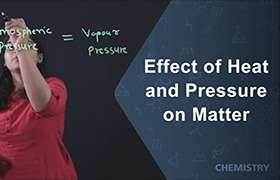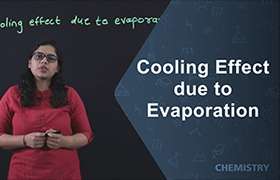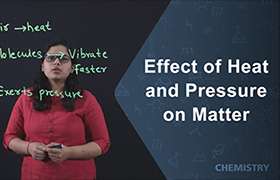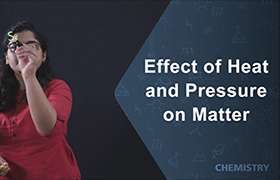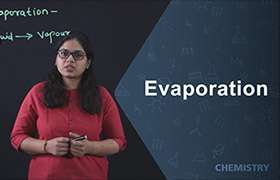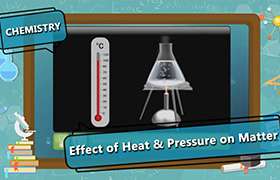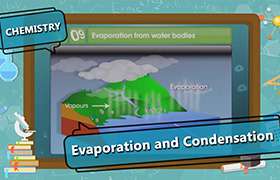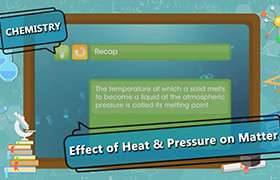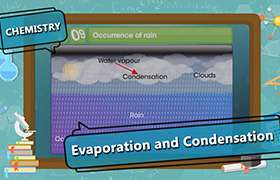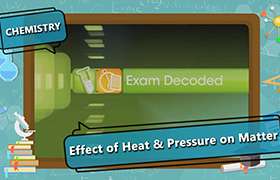CBSE Class 9 Answered
Evaporation is the process by which molecules in a liquid state (e.g. water) spontaneously become gaseous (e.g. water vapor). It is the opposite of condensation. Generally, evaporation can be seen by the gradual disappearance of a liquid when exposed to a significant volume of gas.
On average, the molecules do not have enough energy to escape from the liquid, or else the liquid would turn into vapor quickly. When the molecules collide, they transfer energy to each other in varying degrees, based on how they collide. Sometimes the transfer is so one-sided for a molecule near the surface that it ends up with enough energy to escape.
Liquids that do not evaporate visibly at a given temperature in a given gas (e.g. cooking oil at room temperature) have molecules that do not tend to transfer energy to each other in a pattern sufficient to frequently give a molecule the heat energy necessary to turn into vapor. However, these liquids are evaporating, it's just that the process is much slower and thus significantly less visible.For molecules of a liquid to evaporate, they must be located near the surface, be moving in the proper direction, and have sufficient kinetic energy to overcome liquid-phase intermolecular forces.[1] Only a small proportion of the molecules meet these criteria, so the rate of evaporation is limited. Since the kinetic energy of a molecule is proportional to its temperature, evaporation proceeds more quickly at higher temperature. As the faster-moving molecules escape, the remaining molecules have lower average kinetic energy, and the temperature of the liquid thus decreases. This phenomenon is also called evaporative cooling. This is why evaporating sweat cools the human body. Evaporation also tends to proceed more quickly with higher flow rates between the gaseous and liquid phase and in liquids with higher vapor pressure. For example, laundry on a clothes line will dry (by evaporation) more rapidly on a windy day than on a still day.Three key parts to evaporation are heat, humidity and air movement. its the same case with water in earthen pot cool during summer.

